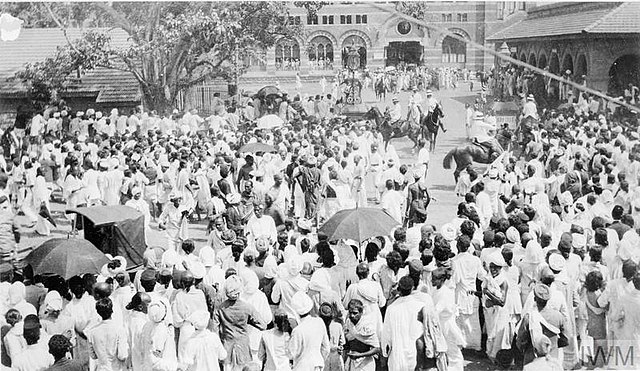Bal Gangadhar Tilak and the Home Rule Movement
History Indian HistoryPosted by NewAdmin on 2025-02-04 08:38:13 |
Share: Facebook | Twitter | Whatsapp | Linkedin Visits: 32

Bal Gangadhar Tilak, a prominent leader of India’s freedom struggle, played a crucial role in advocating for self-rule through the Home Rule Movement. This movement, initiated in 1916, was aimed at achieving self-governance within the British Empire, much like the dominion status enjoyed by countries such as Canada and Australia at the time. Tilak, often referred to as "Lokmanya," was a firm believer in the idea that Swaraj (self-rule) was the birthright of every Indian, and he tirelessly worked towards mobilizing public support for this cause.
Tilak launched the Home Rule League in April 1916, focusing primarily on western India, including Maharashtra, Karnataka, and central provinces. Around the same time, Annie Besant, a British social reformer, also started a similar Home Rule League, covering other parts of India. Both movements worked in coordination to spread the demand for self-governance and create political awareness among the masses. The leagues organized public meetings, lectures, and discussions, emphasizing the need for Indians to participate actively in their own governance rather than remain passive subjects under British rule.
One of Tilak's most significant contributions to the movement was his ability to connect with the common people and instill a sense of national pride. He used newspapers like Kesari and Mahratta to spread nationalist ideas and criticize British policies. His slogan, "Swaraj is my birthright, and I shall have it," became a rallying cry for Indian nationalists. Through the Home Rule League, he advocated for constitutional reforms, representation for Indians in governance, and greater political autonomy.
The movement gained momentum quickly, alarming the British authorities. In response, the colonial government imposed restrictions and took repressive actions, including the arrest of several leaders. Annie Besant was briefly interned, and Tilak faced significant opposition from British officials. However, the movement successfully laid the groundwork for future nationalist struggles, including the Non-Cooperation Movement led by Mahatma Gandhi.
Though the Home Rule Movement declined after 1918, primarily due to World War I and changing political circumstances, it left a lasting impact on India's independence movement. It awakened a political consciousness among Indians and established the idea that self-rule was not just an aspiration but a legitimate demand. Tilak’s contributions to the movement cemented his legacy as one of India’s most influential freedom fighters, inspiring generations of leaders who would later achieve India's independence in 1947.
Search
Categories
Recent News
- Gates vs. Epstein: The Battle of Billionaires Amid Scandalous Allegations
- Telugu Star Fights AI Pornography: A Battle for Privacy and Dignity
- Elderly Woman's Expensive Pigeon Feeding Habit
- Reviving a Democratic Tradition: India's Election Chiefs Convene
- Medical Student's Tragic Death Shocks Nellore College
- Tamil Nadu's Welfare Drive: Empowering Citizens, One Camp at a Time
- Telangana's T-Safe App: Revolutionizing Women's Safety
- Cyberabad's War on Drugs and Crime
Popular News
- Navigating IPO Market Dynamics Amid Volatility and Regulatory Changes
- Massive Worldwide Microsoft Outage Disrupts Multiple Sectors
- Panjapur Bus Stand to Reshape TNSTC Routes
- తెలుగుదేశం పార్టీ - పేదరికాన్ని నిర్మూలించడంలో వాగ్దానం
- Universities Embrace Remote Learning Technologies Amidst Ongoing Pandemic